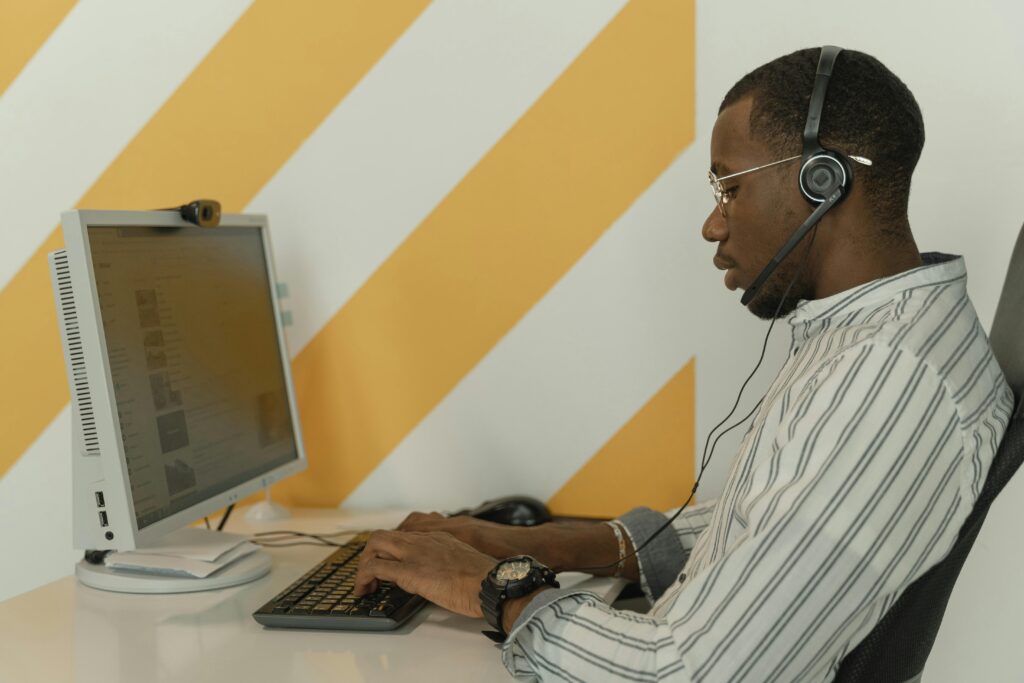A podcast assignment can serve as a highly effective mode of summative assessment in courses across disciplines by fostering active learning and collaboration. Unlike written assignments, podcasts require students to communicate their understanding through spoken language, engaging their creativity, their ability to synthesize information, and finally their ability to break down critical concepts into relevant and easy to understand information. In disciplines like history or literature, students can narrate research findings or analyze texts, while in fields like science or business, they can present case studies or explore complex concepts. Instructors may also require that student podcasting groups identify and interview appropriate subject matter experts for their podcasts which allows them to further practice their public speaking skills in an authentic setting.
The spoken word format of the podcast also encourages students to consider audience, tone, diction, and clarity, underscoring the relevance of such skills in academic and professional communication. Likewise, assigning a podcast as an assment aligns with multimodal learning, accommodating diverse learning preferences and building digital literacy skills, which are increasingly relevant in today’s media-driven world.
Finally, podcast assignments promote student ownership and engagement. Since students often feel more invested in creating a public-facing product, they may put greater effort into their research and presentation. The assignment also allows for collaboration, allowing students to work in teams, delegate responsibilities, and develop project management skills.
For instructors, podcasts offer a flexible assessment tool that can be adapted to course objectives—whether evaluating students’ grasp of content, their ability to apply concepts, or their research and oral communication skills. Overall, podcasting provides a dynamic way to assess student learning while encouraging practical, transferable skills that benefit students beyond the classroom.
A curated list of resources and guides to incorporate a podcasting assignment or assignments in courses is provided below.

Instructor Resources
Helpful Overview of Implementing a Podcasting Assignment from Beginning to End: https://blog.tcea.org/simple-process-template-student-podcasting/
Assignment Overview and Application: https://mediacommons.psu.edu/faculty/instructors-guide-to-media-activities/basic-podcasting-assignment/
New York Times Podcast Assignment: https://www.nytimes.com/2018/04/19/learning/lesson-plans/project-audio-teaching-students-how-to-produce-their-own-podcasts.html
New York Times Step-by-Step Guide for Podcasting: nytimes.com/2020/04/22/learning/making-a-podcast-that-matters-a-guide-with-examples-from-23-students.html
NPR on Teaching Podcasting: https://www.npr.org/2018/11/15/662116901/teaching-podcasting-a-curriculum-guide-for-educators
Programs For Recording and Editing
This mode of production is likely new to most students. However, there are many helpful tools that can assist students in developing their projects. Below, you will find links to several common and free recording programs:
Garage Band (MAC Users): https://www.apple.com/mac/garageband/
Garage Band Tutorial: https://mediacommons.psu.edu/2017/04/30/starting-a-new-podcast-project-in-garageband/
Audacity: https://www.audacityteam.org/
Soundcloud: You can create an account at https://soundcloud.com.
SoundCloud does not have a feature to let multiple accounts administer a feed; each account is associated only with its own feed: https://blog.soundcloud.com/2018/05/30/host-podcast-soundcloud/Audior
Sample Rubric for Podcast Project
- Introduction/Conclusion: The program contains a clear Introduction and conclusion; all cohosts and guests are properly introduced, conclusion brings closure. 20%
- Content: The project provides insightful and accurate information connected to the topic. 30%
- Delivery/Sound Quality: All group members are represented and can be heard with clarity. 20%
- Interview: The guest is interviewed providing clear and insightful new information for discussion. As noted, guests can be recorded or contacted via email and/or phone. 20%
- Use of quality source material with proper citations (MLA or APA); must submit Works Cited or References page with sound file. Three sources are interwoven into the project. 10%